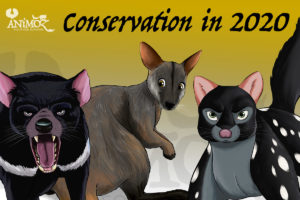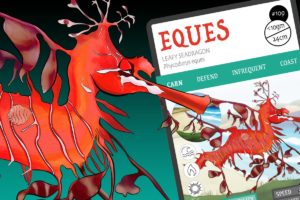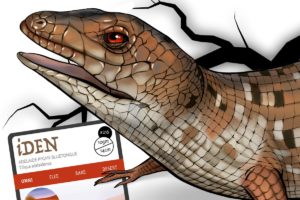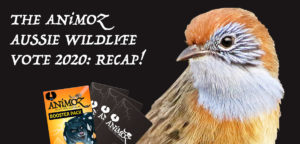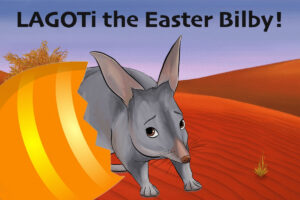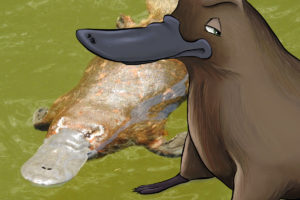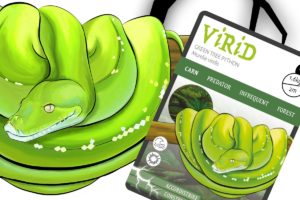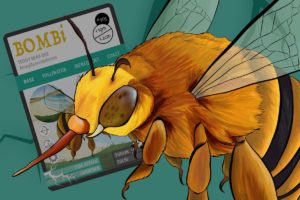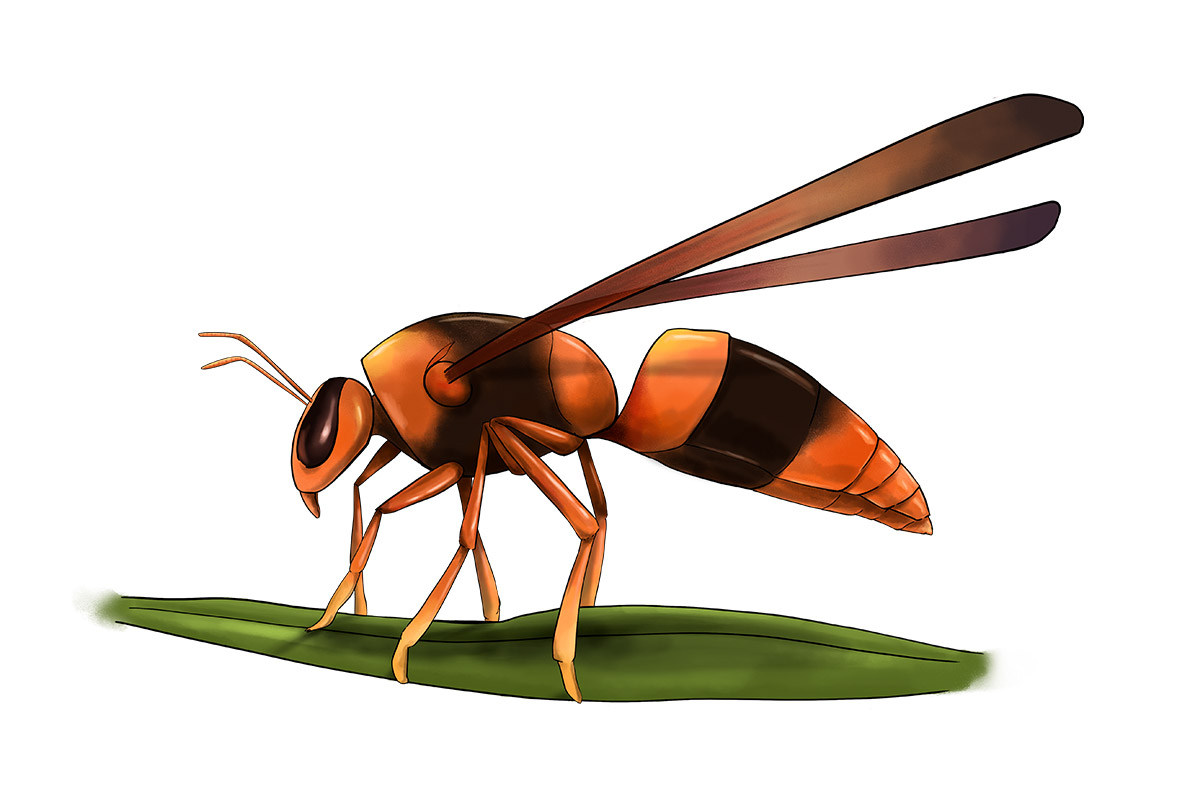
EPHiPPiUM - Australian Hornet
ANiMOZ #409
Code: EPHiPPiUM
Common name: Australian Hornet
Taxonomy: Abispa ephippium
Level: BASE | Form: POLLINATOR
Status: INFREQUENT | BiOME: DESERT (Wildcard)
Overcomes: Fire | Flood | Drought | Persecution
SUPERPOWERS:
IMPRISON
When EPHiPPiUM catches her prey, she will carry it to her nest made of mud and, using a species IMPRISON Superpower, lock it inside for her larvae to feed on.
BASE
EPHiPPiUM automatically wins a Clash against a Base species.
WEAKNESSES:
CARN-WING
EPHiPPiUM automatically loses a Clash to any Wing species of the Carn level
SIZE
Despite his amazing powers, EPHiPPiUM automatically loses a Clash to any species heavier than him - unless it is a BASE species, which he automatically defeats.


How ANiMOZ Helped Australian Wildlife in 2020
2020 was the first full year of ANiMOZ being out in the Ranger community! Whilst it was a challenging 12 months both for Rangers and endangered species, we’re proud to say we helped make an impact. We supported three organisations working to save some of your favourite ANiMOZ creatures out in the wild: Foundation for …
Species Report: EQUES the Leafy seadragon
EQUES is the Leafy seadragon (Phycodurus eques) – master of camouflage! Species report on the Leafy seadragon EQUES is a master of camouflage with a body covered in leaf-like protrusions and the ability to change colour! They grow 20-24 centimetres long, but it is unknown how long they live for. Leafies are the marine …
Species Report: iDEN the Adelaide pygmy bluetongue
The Adelaide pygmy bluetongue lizard is one of the winning species from the Aussie Wildlife Vote 2020, nominated by Zoos SA! Here’s all you need to know about iDEN (Tiliqua adelaidensis)! They do not have a blue tongue! They get their name because they are a small skink in the same genus as other bluetongue …
Species Report: iDEN the Adelaide pygmy bluetongue Read More »
From the Field: Ranger Frank talks about ACU!
From the Field: Headquarters speaks to real-life Rangers working to save ANiMOZ species like ACU the Short-beaked echidna! In our From the Field series, we talk to scientists working across Australia to save the Rare and Highly Rare animals you know from the World of ANiMOZ. Today, we hear from Ranger Frank who works with …
The ANiMOZ Aussie Wildlife Vote 2020 – Recap
The inaugural ANiMOZ Aussie Wildlife Vote has ended, with the Pygmy bluetongue being voted in to the Booster Packs in top position. After 31 days, 4000 votes, 30 species and tight competition, the 3 animals to make the first official ANiMOZ Booster Packs have been decided by you, Rangers from across Australia: the Pygmy bluetongue …
Learn about LAGOTi the Easter Bilby
The Greater bilby (Macrotis lagotis) is LAGOTi – a Highly Rare animal from the Desert! There were once two species of bilby – Greater and Lesser – but the Lesser bilby became extinct due to predation from Invasive Species (feral cats and foxes). Bilbies are believed to have inhabited Australia for up to 15 million …
Ranger Community: “The game has been a huge feature in our household”
In our Ranger Community series, we hear from ANiMOZ Rangers out in the field about how they use the game to learn about, teach about and support wildlife. The Rangers from EnviroEdu write to Headquarters about how they use ANiMOZ! The ANiMOZ – Fight for Survival card game has been a huge feature in …
Ranger Community: “The game has been a huge feature in our household” Read More »
From the Field: Ranger Tam talks about ANATi!
From the Field: Headquarters speaks to real-life Rangers working to save ANiMOZ species like ANATi the Platypus! In our From the Field series, we talk to scientists working across Australia to save the Rare and Highly Rare animals you know from the World of ANiMOZ. Today, we hear from Ranger Tam who works with ANATi! …
Species Report: ViRiD the Green tree python
The Green tree python (Morelia viridis) is ViRiD – a Carn Predator from the Forest! Adult Green tree pythons are 150-180 centimetres long, but can grow up to 200 centimetres They can live for up to 20 years Juveniles are a different colour from the adults. Found in Indonesia, Papua New Guinea, and northern …
Species Report: BOMBi the Teddy bear bee
The Teddy bear bee (Amegilla bombiformis) is BOMBi – a Pollinator species from the Coast BiOME Also known as the Golden-haired mortar bee – a solitary bee endemic to Australian coastal habitats. BOMBi is a large bee, growing up to 15mm long. A Pollinator species, the Teddy bear bee helps many of our native plants …

